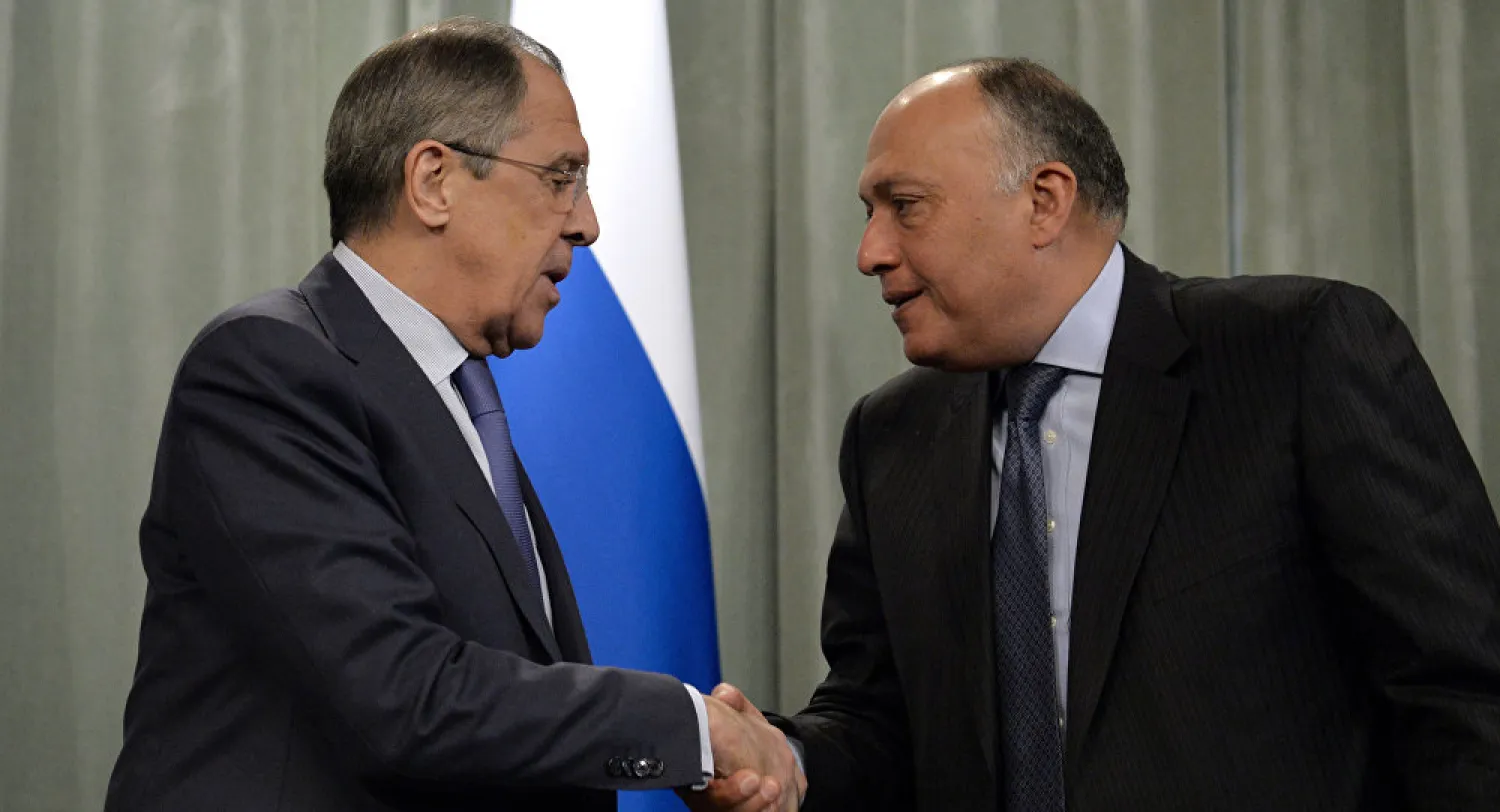The Egyptian-Russian two-plus-two dialogue between the foreign and defense ministries of the two countries is expected to kick off in Moscow on Monday to discuss the situation in the Middle East, particularly the crises in both Syria and Libya, the situation in Sudan and the security in the Gulf region.
The talks aim to bolster bilateral relations between Cairo and Moscow in many fields, according to official statements.
Egyptian Foreign Minister and senior officials from the Russian Ministry of Defense are set to discuss a number of issues and topics of common interest in light of the military partnership and cooperation between the armed forces of both countries.
Egyptian Defense Minister Mohamed Zaki and Foreign Minister Sameh Shoukry already kicked off the official visit on Sunday.
Zaki is scheduled to attend Russia's 5th Jubilee ARMY 2019 International Military and Technical Forum.
Egyptian foreign ministry spokesman Ahmed Hafez said Shoukry would hold talks with his Russian counterpart Sergei Lavrov on bilateral ties in the political, economic and cultural fields.
“This will reflect the depth and strength of the special relationship between the two countries and the importance both sides attach to continue working on boosting and developing bilateral ties at all levels,” the statement read.
The Russian Foreign Ministry said talks in Moscow should tackle the situation in the Middle East and North Africa, in addition to security threats in the Gulf region and terrorism-related issues.
Egypt's ties with Russia have been growing since Egyptian President Abdel Fattah al-Sisi took office in 2014, when the two countries inked several military and economic cooperation agreements.
Monday’s two-plus-two meeting is the fifth between the two sides. The first was held in Cairo in November 2013, while the second was held in Moscow in February 2014.









